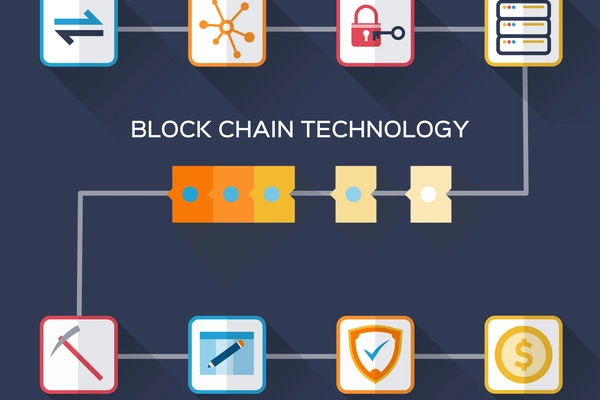In the rapidly developing landscape of the digital age, cryptocurrencies and blockchain technology have emerged as transformative forces that are reshaping the way we perceive and engage with the virtual economy. As these technologies continue to mature, their impact is becoming increasingly profound, influencing various sectors and industries. In this write-up, I will explore how cryptocurrencies and blockchain are self-controlled to shape the future of the virtual economy.
The Rise of Cryptocurrencies
Cryptocurrencies, with Bitcoin leading the charge, have gained significant traction as a new form of digital currency. Bitcoin and other cryptocurrencies run on decentralized networks powered by blockchain technology, in contrast to conventional currencies that are issued by governments and central banks. This decentralization brings forth a range of benefits, including increased security, reduced transaction costs, and financial inclusion for unbanked populations.
Financial Inclusion: The underprivileged and unbanked communities can now access financial services through cryptocurrencies. With a smartphone and an internet connection, individuals can participate in the global economy, send and receive funds, and even access decentralized financial services like lending and borrowing.
Reduced Transaction Costs: Traditional financial transactions often involve intermediaries, such as banks, which can lead to higher fees and longer processing times. Cryptocurrencies streamline this process, eliminating the need for intermediaries and reducing transaction costs. This is particularly advantageous for cross-border transactions, where cryptocurrencies can facilitate faster and more cost-effective transfers.
Security and Transparency: Blockchain, the technology underlying cryptocurrencies, provides a secure and transparent way of recording transactions. The decentralized and fixed nature of the blockchain ensures that once a transaction is recorded, it cannot be altered or tampered with, which enhances security and trust in the financial system.
Blockchain beyond Cryptocurrencies
While cryptocurrencies have gathered much attention, blockchain technology extends beyond digital currencies and has the potential to revolutionize various industries.
Supply Chain Management: Blockchain technology may make the supply chain more visible and transparent. By recording every stage of a product’s journey on a blockchain, stakeholders can verify the authenticity and origin of goods, reduce fraud, and improve overall efficiency in supply chain management.
Smart Contracts: Smart contracts are self-executing agreements that have every clause of the contract encoded directly into the code. These contracts operate on blockchain networks, automating and enforcing the terms without the need for a negotiator. This not only reduces the risk of fraud but also accelerates the execution of contractual agreements.
Healthcare: In the healthcare sector, blockchain can facilitate the secure and consistent sharing of patient data among healthcare providers. This can lead to improved patient care, reduced administrative costs, and enhanced data security and privacy.
The Evolving Landscape of Decentralized Finance (DeFi)
One of the most notable developments in the blockchain space is the rise of decentralized finance (DeFi). DeFi refers to a set of financial services built on blockchain technology, aiming to recreate and enhance traditional financial systems without the need for central authorities.
Lending and Borrowing: DeFi platforms enable users to lend and borrow cryptocurrencies without

additional negotiators. For people who might not have access to conventional banking services, this creates new chances.
Decentralized Exchanges: Cryptocurrency exchanges built on blockchain offer users the ability to trade digital assets directly without relying on a centralized authority. This enhances security, reduces the risk of hacking, and empowers users with greater control over their assets.
Staking and Yield Farming: Staking is taking part in a blockchain network’s work and receiving incentives in exchange. Yield farming, on the other hand, involves users providing liquidity to decentralized platforms in exchange for additional tokens. Both concepts showcase the innovative ways in which blockchain is redefining how individuals can earn passive income.
In conclusion, cryptocurrencies and blockchain are absolutely reshaping the virtual economy. From providing financial inclusion and reducing transaction costs to transforming industries through blockchain applications, the impact of these technologies is far-reaching. As we navigate the evolving landscape of the digital era, it is clear that cryptocurrencies and blockchain will continue to play a pivotal role in shaping the future of the virtual economy. Embracing these innovations with careful consideration of challenges and opportunities will be key to unlocking their full potential.

